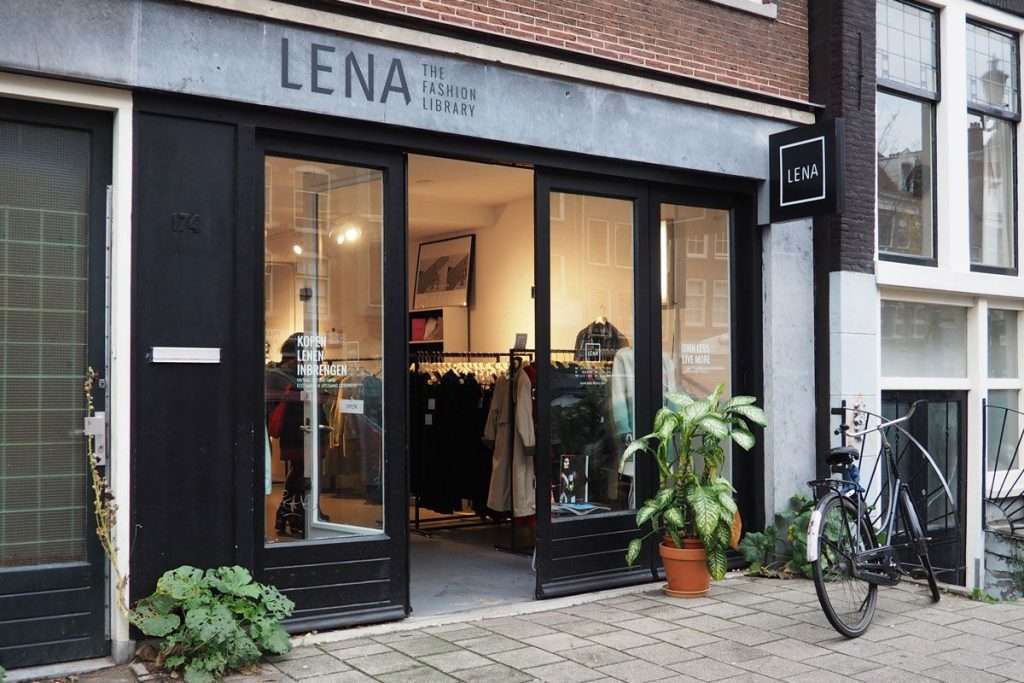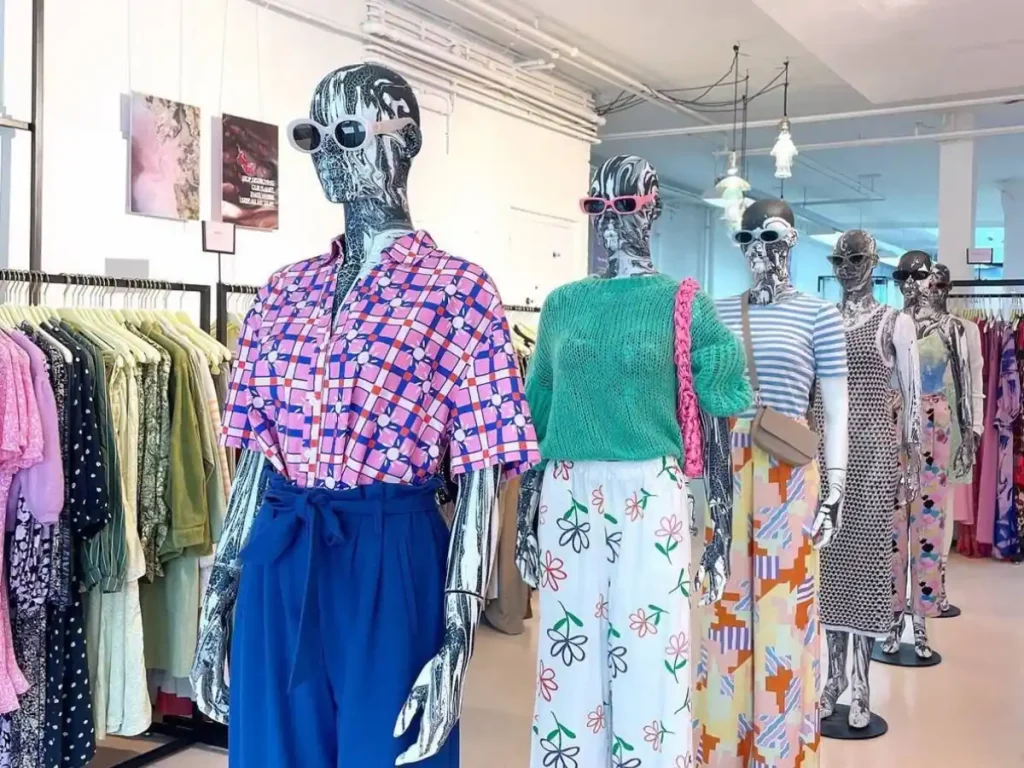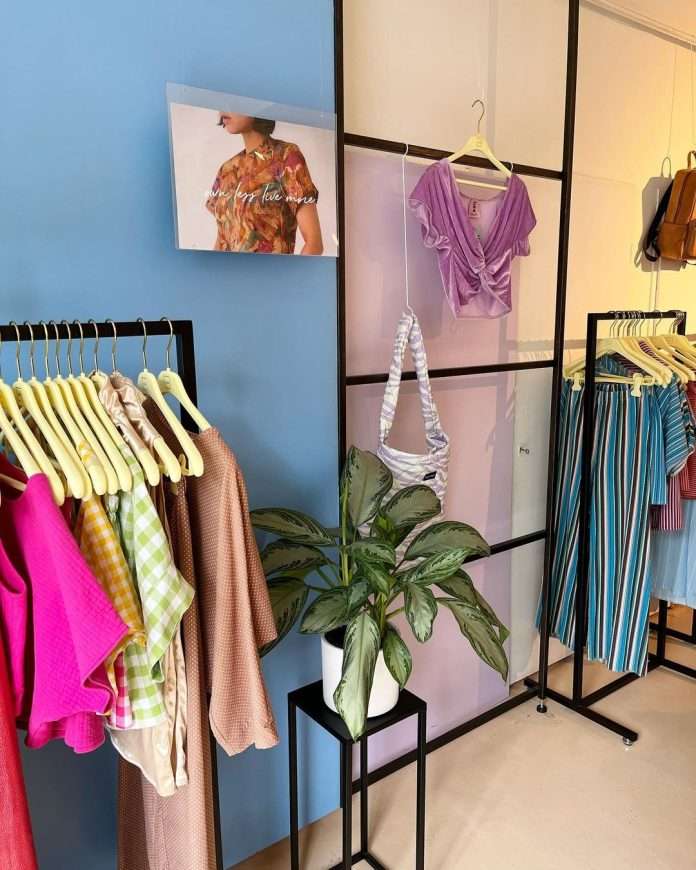Cheaper than popular subscription clothing rental platforms, a new library-inspired clothing borrow system aims to reduce textile waste and make quality fashion more affordable.
Humans have been using libraries for thousands of years. In fact, historians believe that the very first library appeared in the Fertile Crescent — a boomerang-shaped region in the Middle East where some of the very first human civilizations lived.
A library is, of course, a simple concept. You borrow a book, you read it, and you give it back, before choosing a new book. You know how a library works. It’s easy, and it means everyone gets to read the literary works they enjoy, without needing to buy anything. But while the library model makes great economic sense, it also makes great sense in terms of sustainability, too. That’s why one Dutch business, called LENA, has taken the concept of a library and used it to try and solve one of the greatest environmental issues of the moment: clothing waste.
Stamping out fast fashion with libraries
Today, around 100 billion garments are produced every year, and around 93 million tonnes end up in landfills. Recent research found we’ve used nearly the same amount of new materials in the last six years as we did during the entire 20th century. This monumental amount of waste is largely fuelled by fast fashion giants, which focus on selling as many clothes as possible for incredibly cheap prices. At the time of writing, one of the cheapest items of clothing in the Shein sale section is less than $3.50.
LENA, which is based in Amsterdam, is trying to help people move away from the addictively low-cost world of fast fashion by making it affordable and stylish to borrow clothes. It works like this: each item is a certain amount of credits (one credit = €0.25 per day). You pay for the days you borrow the garment and nothing else. On its website, the brand notes that it wants consumers to see LENA — which started back in 2014 — as part of their own wardrobe.

You can always borrow what you like at the moment, the site explains. It says consumers can change as often as they want. “This way,” LENA says, “you always have something new in your wardrobe, and the need to buy something disappears.”
The amount of clothes you waste starts to reduce, too. LENA’s model is, of course, similar to rental websites like By Rotation and Rent the Runway, but it’s more affordable than many of its competitors (the cheapest subscription option at Rent the Runway, for example, is $89 per month for 5 items).
LENA also has a physical, permanent library space where people can visit and try on the clothes they would like to borrow. And the more they borrow, the more discounts they accrue. If one of LENA’s 6,000 members borrows more than €30 per calendar month, for example, they get a 20 percent discount.
Libraries are inherently circular and sustainable
The Dutch brand isn’t alone. Last year, in Inverclyde, Scotland, a traditional library launched a new initiative to help people repair, reuse, rent, and upcycle clothing and many other items. Called the Lend and Mend Hub, it was the first in the country to host the concept, which was also rolled out to eight other facilities.
“Traditionally, repairing clothes and other household goods was commonplace for most local households and many residents will still remember their parents, grandparents, aunts, or uncles digging out the sewing kit to fix a pair of trousers or learning how to change a fuse,” Inverclyde Councillor Jim Clocherty said in a statement.
“Sadly, many of those practices went out of fashion over the years as buying new became more affordable and a lot more convenient for the mass market,” he noted. He added that due to the cost of living crisis, and growing awareness over the climate crisis, people are now seeking to repair, reuse, and upcycle more than ever.

Consumers all over the world are indeed worried about the state of the planet. In 2022, for example, one study by YouGov suggested that two-thirds of Brits were concerned about the effects of the climate crisis, and more than half felt that individuals could help to make a big difference. And in 2023, research from the Pew Research Center suggested that more than half of Americans see the climate crisis as a major threat.
But libraries, which are already integrated into societies across the globe, are inherently sustainable. They provide access to information, support communities, and improve education, but they are also low-waste by default. Whether they are focused on books, clothes, or other items, there’s no doubt that this ancient, simple borrowing model can help the world tackle some of its biggest environmental problems.
“We hope this pilot will help develop a long-term model for libraries to be a hub of circular economy activities,” said Pamela Tulloch, chief executive of the Scottish Library and Information Council, regarding the Lend and Mend Hubs. “[It will also provide] valuable learnings to promote the urgent need to adopt a more circular way of living more widely for the long-term benefit of us all.”
Related on Ethos:


